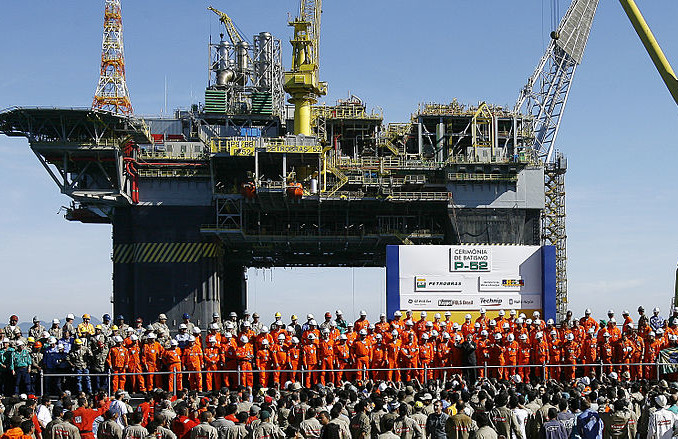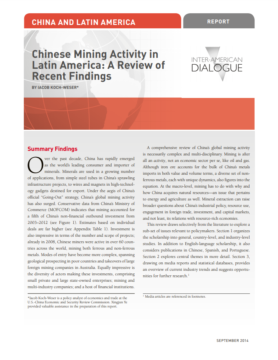The Politics Of Disaster Relief
After a 7.0 magnitude earthquake struck Haiti, the aftershock reached China in ways that few anticipated.The earthquake forced Chinese leaders to navigate the tricky politics of disaster relief.
Brazil holds some of the world’s largest oil fields in the deep water pre-salt, and recent bid rounds have drawn investment from international oil companies and Chinese state-run firms. On June 26th, the Dialogue hosted a panel discussion on investment in Brazil’s oil sector and the future of Brazilian energy policy. Organized with the generous support of the Alcoa foundation, the session featured Sylvie D’Apote, managing partner at Prysma E & T Consultores, and Edmar Almeida, an economist from Universidade Federal, Rio de Janeiro. The Dialogue’s Energy Program Director, Lisa Viscidi, moderated the exchange.
Despite initial excitement over the discovery of Brazil’s vast pre-salt oil fields, production has been flat over the past four years, which the speakers attributed to Petrobras’ overly optimistic production targets, insufficient investment, increased safety regulations, and delays in commissioning new FPSOs. However, private investment in the sector has been growing and production is expected to increase drastically after 2016. Although recent regulations have limited the ability of foreign companies to bid on pre-salt fields, farming out of contracts has increased, allowing foreign companies access to drilling rights. On the gas side, Brazil will continue to rely on LNG imports for electricity supply flexibility; even as it looks to increase domestic production.
Initially tepid, Chinese engagement in the Brazilian oil and gas sector has ramped up dramatically since the discovery of the country's pre-salt reserves. Most Chinese investment has been concentrated in exploration and production, with companies Sinochem, Sinopec and Petrogal already ranking among Brazil's top petroleum producers. Since the approval of a $10 billion loan to Petrobras from China Development Bank, China has also emerged as an important source of financing and technology for Brazil's developing deepwater industry. While immense opportunities exist for deeper ties, China's role will depend on how its government and firms adapt their strategies and practices to Brazil's unique business environment.
Although the deep water pre-salt oil fields provide opportunities for Petrobras and foreign investors, D’Apote and Almeida agree that Brazil must focus on reforms that will make Petrobras more competitive and create an attractive investment environment for foreign firms.
After a 7.0 magnitude earthquake struck Haiti, the aftershock reached China in ways that few anticipated.The earthquake forced Chinese leaders to navigate the tricky politics of disaster relief.
Despite reports in recent months that Mexican manufacturing is experiencing a resurgence, Mexico’s industrial sector faces tremendous challenges.
China has rapidly emerged as the world’s leading consumer and importer of minerals.
 Ricardo Stuckert / CC BY 3.0 BR / Agência Brasil
Ricardo Stuckert / CC BY 3.0 BR / Agência Brasil
